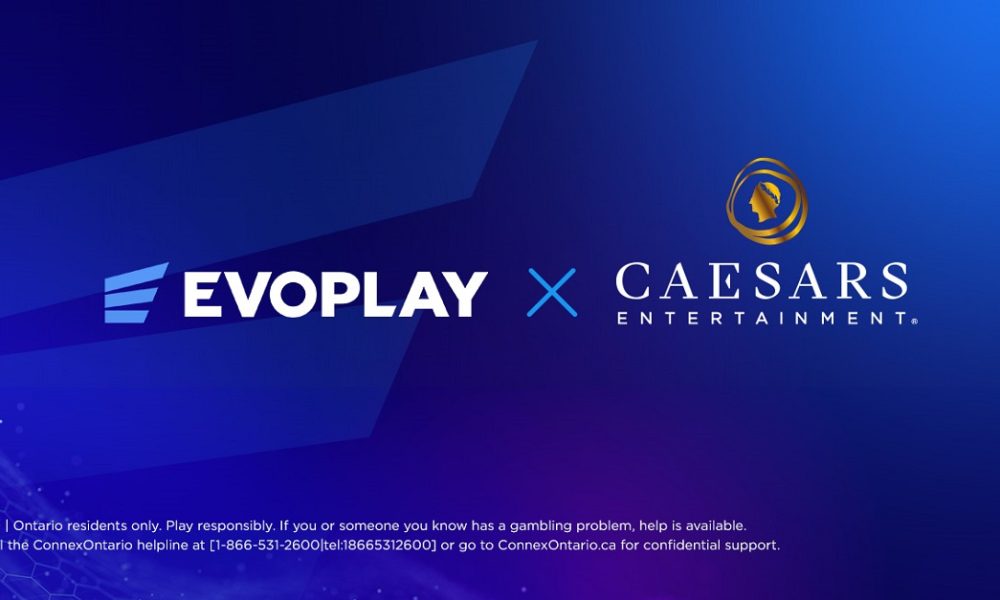Canada
Golden Matrix Reports Fiscal 2022 Financial Results With Record Revenues of $36 Million
Golden Matrix Group Inc., developer, licensor and global operator of online gaming and eCommerce platforms, systems, and gaming content, today reported financial results for its fiscal year ended October 31, 2022.
- Full year revenues of $36 million, an increase of 219% on revenues of $11.3 million in the comparable 12-month period ended October 31, 2021.
- Adjusted EBITDA of over $3.5 million * for the year ended October 31, 2022.
- Cash and cash equivalents of $14.9 million and total assets of $32.5 million as of October 31, 2022.
- Total liabilities as of October 31, 2022 of $2,774,932, comprised of $2,715,154 in current liabilities and $59,778 in non-current liabilities.
- GMGI shareholders’ equity of $26.8 million , up from $18.9 million on October 31, 2021, an increase of 42% over the 12-month period. ended October 31, 2021.
- Current game operations and registered user numbers of 685 and 7 million, respectively, in business-to-business (B2B) traditional business.
- Business-to-consumer (B2C) segment – RKings Competitions Ltd. (RKings) – now has over 45,000 unique active users per month.
- Subsequent event: On January 12, 2023, GMGI entered into a definitive agreement to acquire MeridianBet Group and its related companies in a cash and stock transaction valued at approximately $300 million.
Revenue contributions in fiscal 2022 from GMGI’s B2B and B2C segments were $14.8 million and $21.2 million, respectively. There were no contributions from the (RKings) B2C segment during fiscal 2021, as GMGI had not acquired its 80 percent controlling ownership interest in RKings until the beginning of fiscal 2022. At the end of the fiscal year, GMGI exercised its option and acquired the remaining 20 percent interest. The revenues and adjusted EBITDA discussed above include the 20% non-controlling interest which was held in RKings during the year ended October 31, 2022. More detailed information on the minority interest can be found in our most recent Annual Report on Form 10-K for the year ended October 31, 2022, which was filed with the Securities and Exchange Commission (SEC) today.
The increase of general and administrative expenses – to $5,442,591 in fiscal 2022 from $1,264,672 in the prior year – was due primarily to $3,131,121 of G&A expenses from the Company’s RKings B2C segment. The 83% year-over-year increase in G&A expenses in the B2B segment was due mainly to increases in marketing and payroll costs.
“This has been a highly constructive year for our rapidly growing company,” said Golden Matrix CEO Brian Goodman, who continued, “We believe the increased costs incurred and investments made in our B2B and B2C platforms have positioned GMGI to sustain and even accelerate our strong revenue growth. To remain competitive in the worldwide gaming industry, we are continually upgrading our systems and gaming content offerings to support the needs of our millions of participants.”
Mr. Goodman said, the entry into the agreement to purchase MeridianBet Group, announced recently (the “Purchase Agreement”) and expected to be completed in the first half of the current year, “will significantly advance GMGI’s global footprint with numerous B2B and B2C product offerings on most continents and, we believe, create the opportunity for us to participate in online gambling markets in the U.S. and Canada.”
Mr Goodman further added, “The combined pro forma revenues of Golden Matrix and MeridianBet are expected to be greater than $100 million for FY2022, with an Adjusted EBITDA estimated to be greater than $22 million for the pro forma year ended October 31, 2022, making the combination financially appealing and earnings-accretive.”
Mr. Goodman said that GMGI expects to begin generating considerable revenues in the first half of this year via its B2C Mexican Casino, which offers Online Casino Games, Sportsbook and the successful RKings Tournament product and continued, “We believe it should serve as the first major step toward GMGI’s planned expansion throughout Latin America.”
Selective amounts stated above are rounded to the nearest $100,000, please see Form 10-K for exact numbers
Canada
absolutebet Secures AGCO Registration as an Internet Gaming Operator in Ontario

Internet Gaming Operator by the Alcohol and Gaming Commission of Ontario (AGCO).
This significant milestone authorizes absolutebet to offer regulated iGaming services in Ontario’s legal market under the oversight of AGCO and iGaming Ontario (iGO).
The registration marks a key step in absolutebet’s mission to bring a trusted, responsible, and innovative online casino experience to Ontario players. absolutebet is committed to operating with integrity and transparency, meeting all provincial standards for player protection, responsible gambling, anti-money laundering, and game integrity.
“Securing AGCO registration is more than a milestone—it’s the start of absolutebet’s journey in one of the most exciting regulated markets in the world,” said Chen Truman, Founder of absolutebet. “We are building a brand that will grow with the Ontario community and set the stage for future expansion.”
On the regulatory milestone, Krisztina Kalla, Legal & Regulatory Compliance Advisor of absolutebet, commented: “I’m incredibly proud to see all the hard work behind this license pay off. Securing AGCO registration has taken months of preparation and close collaboration with regulators and partners. I am very happy to see the result of that work, and even more excited as we move into the launch phase and open up the absolutebet community to Ontario players in a fun and responsible way.”
Ontario is recognized as one of the most competitive and fast-growing regulated iGaming markets in North America. With AGCO registration secured, absolutebet will move forward with the final stages of its iGO onboarding process in preparation for launch.
The post absolutebet Secures AGCO Registration as an Internet Gaming Operator in Ontario appeared first on Gaming and Gambling Industry in the Americas.
Alex Malchenko Head of Sales at Evoplay
Evoplay strengthens Ontario presence in partnership with Caesars Entertainment

Evoplay, the award-winning game development studio, has partnered with Caesars Entertainment to expand its footprint in the Canadian market, following its initial entry earlier this year. The partnership integrates 20 of the studio’s top-performing titles onto Caesars Palace Online Casino, Horseshoe Online Casino and Caesars Sportsbook & Casino in Ontario, including fan-favourites such as Hot Triple Sevens, Triple Chili, and The Greatest Catch Bonus Buy.
Having announced its official entrance into Ontario in March, the collaboration with Caesars marks a significant step in Evoplay’s local strategy. Further standout releases, such as Inner Fire Bonus Buy and Hot Volcano, also launched as part of the initial package, with additional player favourites, including Fruit Nova and Ice Mania.
The collaboration underlines Evoplay’s commitment to working with leading operators to deliver high-quality content tailored to regional audiences.
Alex Malchenko, Head of Sales at Evoplay, said: “Launching with Caesars in Ontario marks a key milestone in our North American strategy.
“It reflects both the strength of our portfolio and our commitment to providing innovative, high-performing content to operators of the highest caliber.”
Ricardo Cornejo Rivas, Vice President of Online Gaming at Caesars Digital, said: “Evoplay brings a fresh and dynamic approach to online gaming, which we’re excited to offer to our players in Ontario. This portfolio of standout titles adds to our growing content library and furthering our ongoing goal of delivering top-tier entertainment experiences to our players.”
The post Evoplay strengthens Ontario presence in partnership with Caesars Entertainment appeared first on Gaming and Gambling Industry in the Americas.
Canada
iGaming Ontario Appoints Joseph Hillier as its New President and CEO

The iGaming Ontario Board of Directors has announced Joseph Hillier as the organization’s new President and Chief Executive Officer, effective September 8, 2025. Joseph’s depth in the Ontario igaming market combined with successful public and private sector careers make him the ideal President and CEO at this critical point in iGaming Ontario’s growth.
Joseph was most recently Chief Strategy Officer and Corporate Secretary at the Alcohol and Gaming Commission of Ontario (AGCO), where he delivered significant strategic and regulatory initiatives across the province’s alcohol, cannabis, gaming, and horse racing sectors. Prior to the AGCO, he served as Chief of Staff to Ontario Attorney General Hon. Doug Downey and led the development, launch and implementation of Canada’s first private sector-driven igaming market and the creation of iGaming Ontario. Joseph also spent more than a decade working in the financial and legal services sectors.
The Board expressed its sincere thanks to David Smith for serving as Interim President and Chief Executive Officer since Martha Otton’s retirement.
The post iGaming Ontario Appoints Joseph Hillier as its New President and CEO appeared first on Gaming and Gambling Industry in the Americas.
-

 gaming3 years ago
gaming3 years agoODIN by 4Players: Immersive, state-of-the-art in-game audio launches into the next generation of gaming
-
EEG iGaming Directory8 years ago
iSoftBet continues to grow with new release Forest Mania
-
News7 years ago
Softbroke collaborates with Asia Live Tech for the expansion of the service line in the igaming market
-
News7 years ago
Super Bowl LIII: NFL Fans Can Bet on the #1 Sportsbook Review Site Betting-Super-Bowl.com, Providing Free Unbiased and Trusted News, Picks and Predictions
-
iGaming Industry8 years ago
Rick Meitzler appointed to the Indian Gaming Magazine Advisory Board for 2018
-
News7 years ago
REVEALED: Top eSports players set to earn $3.2 million in 2019
-
iGaming Industry8 years ago
French Senator raises Loot Boxes to France’s Gambling Regulator
-
News7 years ago
Exclusive Interview with Miklos Handa (Founder of the email marketing solutions, “MailMike.net”), speaker at Vienna International Gaming Expo 2018









